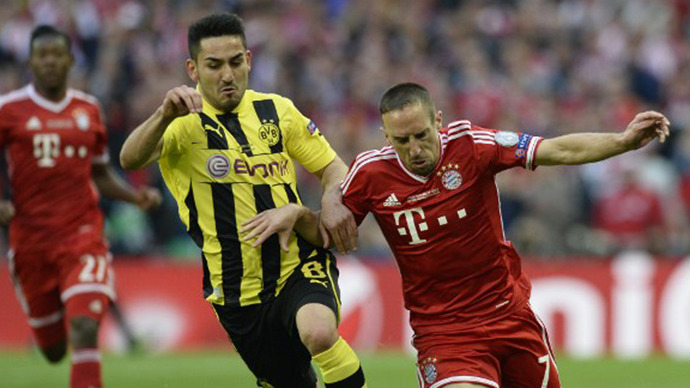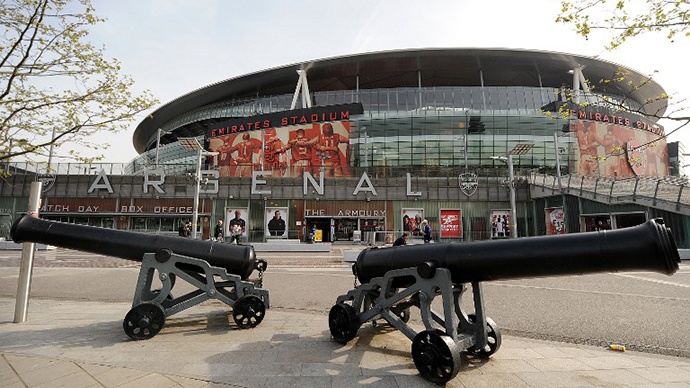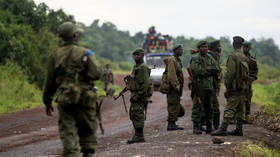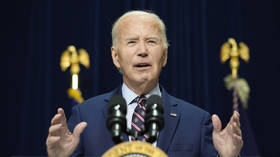Marketing champions: Companies spent $4.5bn on football sponsorship in 2012

Football has scooped the most sponsorship deals in 2012 worth a jaw-dropping $4.5 billion, according to research by IFM Sports Marketing.
The annual World Sponsorship
Monitor report shows other sports struggled for sponsors while
football attracted about $4.5 billion in global sponsorship in
2012, the Financial Times reports.
The largest shirt sponsorship deal in history of sport has been signed in 2012 between Manchester United and General Motors. The car maker paid $659 million for a seven-year contract with the UK champions.
In April, the club also signed another sponsor deal with Aon insurance group. The company paid almost $30 million per season for the rights to Manchester United training ground, training shirts and overseas tours.
According to Phil Clement, Aon chief marketing officer, quoted by the Financial Times, the price is reasonable considering the international reach provided. “We felt that for global reach it was good value,” he said. “Compare it to running an advertising campaign in 120 countries. Advertising is difficult. To have one program that works globally, externally and internally – that’s a nice value proposition,” he explained.
Also last year another leading UK football club, London's Arsenal extended its annual shirt and stadium sponsorship deal worth $45 million annually. Spanish Real Madrid sold its shirt for €30 million per season.

Considering the wide global reach of big football events, sponsorship deals for events such as the Champions League, can cost between $37 million and $45 million per season to a sponsor. For this money sponsors get advertising on the fence surrounding the pitch and “break bumpers” before the ad breaks.
Last season UEFA earned a total $1.6 billion from the worldwide broadcasting rights and from selling its platform of sponsorships to Russian gas major Gazprom, as well as to Adidas, Ford, Mastercard and other companies, the Guardian reports.
Gazprom has become one of the big corporate sponsors of the Champions' League.
Another UEFA partner – Dutch beer maker Heineken – spends around $77 million annually on sponsoring sports events.
Marketing experts believe that sports sponsorship still has room for growth and say fears of a bubble are exaggerated. According to Julie Clark, head of sport at PricewaterhouseCoopers UK, “there are still new markets to go for.”
“There isn’t any evidence that it’s reached the peak yet,” she said as quoted by the Financial Times.












